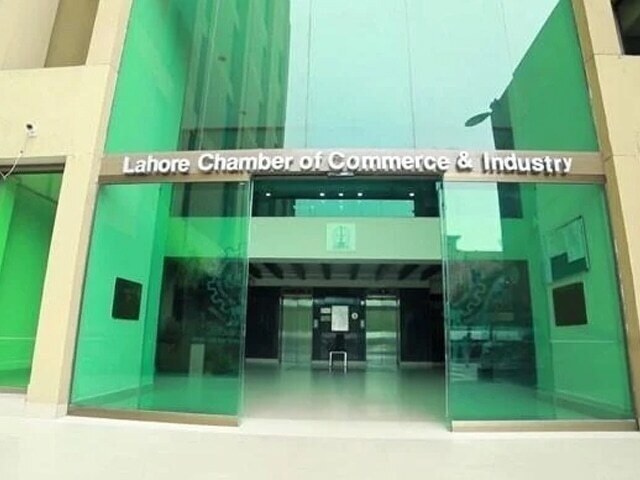LAHORE: The Lahore Chamber of Commerce and Industry (LCCI) has underscored the urgent need to bring down the energy cost by reducing gas and promoting alternative energy resources.
“It is a matter of critical importance for sustaining industrial growth, enhancing export competitiveness and strengthening the national economy,” said President of the Lahore Chamber of Commerce and Industry Faheem-ur-Rehman Saigol, Senior Vice President Tanveer Ahmad Sheikh and Vice President Khurram Lodhi while talking to a delegation of exporters.
The LCCI office-bearers said that low energy prices are a must for local manufacturers and exporters. They said that immediate action is required to create a cost-effective business environment which is essential for enabling Pakistani products to compete in international markets.
They added that, the Oil and Gas Regulatory Authority (Ogra) announced a significant 50 percent increase in fixed charges for domestic gas consumers across Pakistan, effective from July 1, 2025. Concurrently, gas tariffs for industrial, power, and bulk users were increased by up to 17 percent to meet revenue requirements which were a harsh measure.
The LCCI office-bearers said that with industrial gas prices in Pakistan hovering around Rs 2,350 (USD 8.1/MMBtu), significantly higher than in India (USD 6.96) and Bangladesh (USD 6.73), manufacturers are facing mounting cost pressures.
Profit margins across key sectors such as textiles, apparel, ceramics, glass, chemicals, packaging and engineering components are shrinking, rendering export quotations from Lahore increasingly uncompetitive in global markets. The burden of rising energy costs is also squeezing working capital, limiting manufacturers’ ability to procure raw materials, pay wages, and invest in technology upgrades.
They said that to ensure sustainable and cost-effective energy production, Pakistan must prioritize renewable energy sources such as hydel, solar and wind power as they are significantly cheaper compared to gas, electricity, and petroleum.
LNG, in particular, is far more expensive than natural gas and due to gas shortages in winter, reliance on LNG becomes inevitable, further increasing industrial production costs and impacting overall economic competitiveness.
They said that a significant reduction in gas and utility tariffs would directly contribute to lowering production costs making Pakistani goods more competitive abroad. This in turn would help boost exports, attract new orders and generate the much-needed foreign exchange reserves that are vital for macroeconomic stability.
“Pakistan’s export potential is immense but high energy costs are acting as a major barrier. A reduction in these tariffs will not only help existing exporters expand their reach but will also encourage new businesses to enter global markets,” they added.
The LCCI office-bearers also pointed out that lowering energy prices would have a multiplier effect on the economy. It would stimulate industrial activity, create employment opportunities, encourage new investments and restore investor confidence in Pakistan’s manufacturing sector. Moreover a more competitive industrial base would help the country reduce its trade deficit and strengthen its position in regional and global value chains.
They further urged the government to adopt a long-term energy pricing strategy in consultation with the business community. Frequent and unpredictable increases in gas and electricity tariffs create uncertainty and discourage long-term planning and investment. The private sector is ready to play its part in driving economic growth but it requires a stable and supportive policy environment particularly in terms of energy pricing.
Faheem-ur-Rehman Saigol, Tanveer Ahmad Sheikh and Khurram Lodhi hoped that the government would take prompt action to reduce gas and utility prices is not merely an industrial demand but an economic necessity. They expressed confidence that with the right policy decisions Pakistan can enhance its global trade footprint, increase export revenues and pave the way for sustainable economic development.
Copyright Business Recorder, 2025


